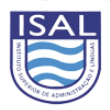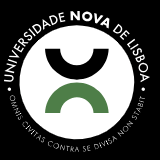Introduction
The University of Lisbon is one of the largest and most prestigious institutions of higher learning in Portugal. It is a comprehensive university with outstanding performance in many academic fields. It has trained many outstanding talents for Portugal and the international community and played an important role in education, scientific research and cultural communication.
Overview
The school has a full range of disciplines, covering many fields such as humanities, social sciences, natural sciences, engineering technology, medicine, and arts. It provides multi-level and diversified educational courses such as undergraduate, master and doctoral degrees, attracting students from all over the world to study. The campus has a strong academic atmosphere and a high degree of internationalization.
History and establishment time
The history of the University of Lisbon can be traced back to the 13th century, but its modern form of university was formed in 2013 by the merger of the former University of Lisbon (established in 1911) and the former Lisbon Polytechnic University (established in 1930). The merged university integrated the advantages of both parties and further enhanced the school's comprehensive strength and international competitiveness.
School strength
Faculty: It has a high-level and diversified faculty, including many internationally renowned scholars and experts. Teachers have rich experience in teaching and scientific research. Their research results have a wide influence in the international academic community and can provide students with cutting-edge academic knowledge and guidance.
Teaching facilities: Equipped with advanced teaching facilities and scientific research equipment, it has modern libraries, laboratories, computer centers, gymnasiums and other facilities. The library has a rich collection of books and complete electronic resources, providing students with good learning and research conditions; the laboratory equipment is advanced and can meet the scientific research and teaching needs of various disciplines.
Scientific research results: It has achieved fruitful results in scientific research, actively participated in international scientific research cooperation projects, and carried out cutting-edge research in many fields, such as biomedicine, physics, computer science, social sciences, etc. The school's scientific research results have been published in top international academic journals and have won many international scientific research awards, making important contributions to promoting academic progress and social development.
Nature of the institution
The University of Lisbon is a public university funded by the Portuguese government. It aims to provide high-quality education and serve the society. It focuses on the independence and innovation of academic research, is committed to cultivating talents with international vision and social responsibility, and follows relevant national regulations in education policies and resource allocation to ensure educational equity and quality.
Educational philosophy
Emphasis on cultivating students' critical thinking, innovation and cross-cultural communication skills, and focusing on the all-round development of students. Students are encouraged to actively participate in academic research, practical activities and international exchange programs to broaden their horizons, improve their comprehensive quality, enable them to adapt to the challenges of the global era, and become professionals with social responsibility and leadership.
Key laboratories and disciplines
Key disciplines: Physics, medicine, computer science, economics and other disciplines are the school's advantageous disciplines. Physics is at the international leading level in fields such as quantum physics and astrophysics; medicine has excellent research and teaching strength in clinical medicine and biomedical engineering; computer science has achieved remarkable results in emerging fields such as artificial intelligence and data science; economics has a high reputation in macroeconomic theory and applied economic research.
Key laboratories: There are many key laboratories, such as the Institute of Biomedical Imaging and Life Sciences (IBILI), the Center for Theoretical and Computational Physics of the University of Lisbon (CFCUL), and the Laboratory of Computer Science and Information Systems (LaSIGE). These laboratories bring together top scientific research talents, are equipped with world-class experimental equipment, carry out cutting-edge scientific research, and have achieved a series of important scientific research results.
Faculty
The school has several faculties, including the Faculty of Humanities and Social Sciences, the Faculty of Science, the Faculty of Medicine, the Faculty of Engineering, the Faculty of Economics and Management, and the Faculty of Arts. Each faculty contains several colleges and research centers, which are responsible for teaching, scientific research, and academic exchange activities in the corresponding subject areas. The faculties cooperate with each other to jointly promote the overall development of the school.
Ranking
It has a high reputation and influence internationally, and performs well in many world university rankings. For example, it has always been at the top of the QS World University Rankings and is one of the highest-ranked universities in Portugal. Its academic reputation, employer reputation, scientific research results, internationalization and other indicators have been internationally recognized, and it occupies an important position in the field of higher education in Europe and the world.
Expenses
For Portuguese students, tuition fees are relatively low, and vary according to different majors and course levels, but are usually at a low level, and some majors are even free. For international students, tuition fees vary depending on the major. The annual tuition fee for undergraduate courses is approximately between 7,000 and 12,000 euros, and the annual tuition fee for master's courses is approximately between 8,000 and 15,000 euros (for reference only, the specific fees are subject to the official announcement of the school). In addition, students also need to consider living expenses, including accommodation, food, transportation, etc. The living expenses in Lisbon are relatively moderate, and the monthly accommodation costs range from approximately 300 to 600 euros, depending on the type of accommodation and geographical location.
Campus environment
The campus is distributed in multiple campuses in Lisbon. The campus environment is beautiful and the architectural styles are diverse. There are both traditional buildings with a long history and modern teaching facilities. The campus is shaded by trees, and the gardens and squares are scattered, providing students with a comfortable learning and living space. The school is surrounded by convenient transportation and rich cultural facilities. Students can easily participate in the city's cultural activities and experience the historical and cultural atmosphere of Portugal.
-

Vasco da Gama University School
-

Higher Institute of Administration and Languages
-

Polytechnic Institute of Maia
-

Higher School of Nursing, Lisboa
-

Superior Institute of Maia
-

Atlântica University
-

Higher Institute of Education and Science Portugal
-

Polytechnic Institute of Leiria
-

NOVA University Lisbon
-

University of Minho
-

Mesoamerican University
-

Istmo University
-

Mariano Galvez University of Guatemala
-

Regional University of Guatemala
-

Galileo University
-

Francisco Marroquín University
-

Rafael Landívar University
-

University of the Valley of Guatemala
-

University of San Carlos of Guatemala
-

Technological Institute of Tlaxcala Plateau
-

Golfo University
-

Technological University of South Sonora
-

Technological University of Huejotzingo
-

Tizimín Institute of Technology
-

Chilpancingo Institute of Technology

